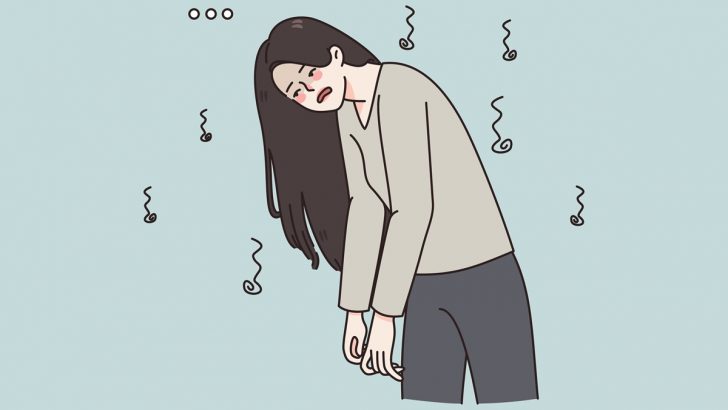Ever wonder why you feel tired even after a full night’s sleep? The culprits might be hiding in your daily routine.
Energy drains aren’t always obvious – they sneak into our lives disguised as harmless habits or necessary evils.
Recognizing these subtle energy vampires is the first step toward reclaiming your vitality and feeling more alive throughout your day.
1. The Smartphone Trap
Your phone beckons with endless notifications, each one stealing a little piece of your focus. Every time you check that text or scroll through social media, your brain switches gears, burning mental energy that adds up throughout the day.
Try setting specific times to check your device instead of responding to every ping. Many people find that turning off non-essential notifications helps them feel more present and less scattered.
Your brain wasn’t designed for constant interruption – it craves periods of sustained attention to work efficiently. Creating phone-free zones in your home, especially your bedroom, can dramatically improve your energy levels.
2. Clutter Chaos
That pile of papers on your desk isn’t just an eyesore – it’s silently sapping your mental energy. Physical clutter creates visual noise that your brain constantly processes, even when you’re not aware of it.
Research shows that people working in organized spaces can focus longer and make better decisions than those surrounded by mess. Your environment directly impacts your energy levels by either supporting or draining your cognitive resources.
Start small by clearing just one surface completely. Many find that maintaining even a single clutter-free zone creates a sense of calm that spreads to other areas of life.
3. Decision Overload
What to wear? What to eat? Which task to tackle first? The average person makes thousands of decisions daily, and each one costs you energy. This mental tax adds up quickly, leaving you exhausted by afternoon.
Famous figures like Steve Jobs and Barack Obama limited wardrobe choices specifically to reduce decision fatigue. Creating simple routines for recurring decisions preserves mental energy for more important matters.
Try preparing tomorrow’s outfit tonight or planning your meals for the week on Sunday. Small preparation steps can dramatically reduce the number of choices you face, keeping your energy bank from being drained by trivial decisions.
4. Energy-Draining Relationships
Some people leave you feeling refreshed after interactions, while others seem to vacuum away your energy. These energy vampires might be complainers, drama-seekers, or those who never reciprocate support.
You don’t need to cut everyone out, but setting healthy boundaries helps protect your energy reserves. Pay attention to how you feel after spending time with different people in your life. Consider scheduling demanding social interactions when your energy is naturally higher.
Many find that limiting time with draining individuals to shorter periods or specific settings helps maintain their own emotional balance without completely severing relationships.
5. Perfectionism’s Hidden Cost
Striving for excellence motivates growth, but perfectionism’s endless demands create a bottomless energy pit. That report you’ve revised twelve times or the spotless house that never feels clean enough? These are perfectionism’s fingerprints.
Perfectionists often struggle with all-or-nothing thinking. A project is either flawless or a complete failure, with no middle ground. This mindset creates unnecessary stress and prevents the satisfaction of completion. Try setting time limits for tasks instead of perfection standards.
Many reformed perfectionists find that the 80/20 rule works wonders – focusing on the 20% of effort that creates 80% of results saves tremendous energy while still producing quality work.
6. Dehydration’s Sneaky Effects
Feeling sluggish might not be from lack of sleep but simply needing water. Even mild dehydration – before you feel thirsty – can drain your energy and fog your thinking. Your body is roughly 60% water and needs regular replenishment to function properly.
Many bodily processes require water, and when levels drop, your system works harder to compensate, using energy that could be directed elsewhere. Keep a water bottle visible as a reminder to sip throughout the day.
Some people find that adding fruit slices or setting hydration alarms helps them maintain better water intake, resulting in more consistent energy levels without relying on caffeine or sugar.
7. Information Overload
News alerts, email newsletters, podcasts, social feeds – we’re drowning in information that our brains weren’t designed to process. This constant influx taxes your mental resources, even when the content seems entertaining.
Your attention is a finite resource. Each headline, video, or article you consume requires mental processing power, regardless of how passively you engage with it. Consider a digital diet that limits consumption to specific times.
Many people find that designating certain hours as “information-free” zones helps their minds rest and recharge. Creating boundaries around news and social media intake can dramatically improve your mental clarity and energy levels.
8. The Sedentary Energy Paradox
Sitting still to conserve energy actually makes you more tired. Though it seems counterintuitive, remaining sedentary reduces circulation, oxygen flow, and cellular energy production. Movement creates energy through improved blood flow and stimulation of mitochondria – your cells’ power plants.
A quick walk can boost your energy faster than a coffee break, with effects lasting much longer. Build movement snacks into your day – short bursts of activity between periods of sitting.
Standing during phone calls, taking the stairs, or stretching for two minutes every hour can prevent the energy slumps that come from prolonged sitting, keeping your physical and mental batteries charged throughout the day.
9. Grudges and Resentment
Holding onto anger is like carrying a heavy backpack everywhere you go. That argument from last week or grievance from years ago requires constant emotional energy to maintain, draining your reserves without you noticing.
Your brain treats unresolved conflicts as ongoing threats, keeping stress hormones elevated. This state of low-grade fight-or-flight response consumes tremendous energy that could be directed toward more positive pursuits.
Forgiveness isn’t about excusing behavior but about freeing yourself from the burden. Many people find that writing letters they never send or practicing simple forgiveness meditations helps release emotional weight, creating space for more energizing thoughts and feelings.
10. Saying Yes When You Mean No
Agreeing to help with that project when your plate is already full? That’s an energy loan with steep interest rates. People-pleasing and boundary issues create commitments that drain you physically and emotionally.
Every reluctant yes steals time and energy from activities that would truly recharge you. The temporary discomfort of declining is far less costly than the exhaustion of overcommitment. Practice pausing before responding to requests.
Simple phrases like “Let me check my schedule and get back to you” create space for thoughtful decisions. Many recovering people-pleasers find that starting small with minor boundaries builds confidence for protecting their energy in more significant situations.











